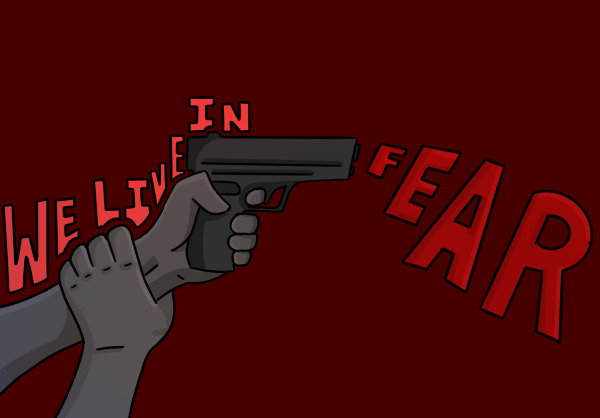Aziz Ansari, “Grace” and The Lessons We’ve Learned
Sexual coercion, power, and the lessons we all need.
Stories of sexual harassment, assault, and abuse have been splashed across the home pages of some of the biggest names in news and journalism for months. The #MeToo movement, arguably the biggest contributor to the rising national debate of sexual harassment and assault, has paved the way for an on rush of stories and experiences. While the movement is extremely necessary—its motives of exposing the power abuses of men, especially in Hollywood, to the world long needed—it has also busted open a much wider door inclusive of not only sexual assault, but also of general sexual coercion— a much more complex topic in itself.
The most recent of victims to the rising movement, much beyond the #MeToo movement’s roots, has been Aziz Ansari— a stand up comedian and actor, and creator of the TV series “Master of None.” After going on date with a woman in September of 2017, Ansari is accused by his date, “Grace” (her name changed to protect her anonymity), of sexual coercion and a borderline non-consensual sexual experience. The story was broken by the publication Babe.net only a few days ago but has been discussed, argued, dismissed, and argued all over again by the public and journalists as well. From The Atlantic’s scalding opinion piece, which all but insults “Grace,” to The Guardian’s piece discussing, and ridiculing, the decency of an exposé as such as this, America is in the middle of a new age of sexual awakening.
Aziz Ansari made a mistake. But it is a mistake that likely thousands of other men across world make every single day. Why? Because when you’re in the moment, it gets kind of hard to differentiate the “let’s have sex” stare from the “you are a disgrace to mankind” stare— sometimes it’s even hard to differentiate those looks when you’re not in the middle of oral sex on your kitchen counter. But let me be clear, I am in no way defending Ansari, or even other males or females—yes, we do it too—who behave in the same manner. I am simply trying to illustrate that if Ansari was any other guy, this would not be a big deal.
My boyfriend has made these mistakes, misinterpreted my signals and the general situation, and maybe you have too. Yes, there are people who couldn’t care less that they are perpetuating sexual misconduct, but the fact is, the majority of people are not intentionally trying to make their sexual partners feel uncomfortable— they’re probably just stupid, sexually-frustrated, and annoying! These exact words have passed through my head every time these stupid series of mistakes have occured in my own life, and maybe, they have for you too. But every time that it’s happened, I have been able to talk the situation out after hand. And obviously not all people are like this, capable of learning from their mistakes and even accepting them, but if you are not willing to even give them the benefit of the doubt, you will never find out.
Mistakes are there for us to learn from; they do not define us, and they do not define our partners. If you close yourself off from even the possibility, you are just as bad as the perpetrator who refused to accept their mistakes. Human beings can be incomprehensibly stupid and because of that stupidity, should be given one singular chance to explain themselves. After that, sorry, but they really are just canceled— you’re better than that.
If one is not even willing to discuss their mistakes, much less acknowledge them, that shows an immense amount of egocentricity in my opinion. Relationships, whether they are sexual, long-term, sporadic, or anything else, should always be respectful and communicative no matter of their extent. And while yes, Ansari coming on to his date “Grace” just about as hard as the freaking tornado in Wizard of the Oz, is not particularly respectful, it must be taken into account that, once again, men, women, and people of all sexual orientations, are really freaking stupid.
“Grace” was not respectful either. She broadcasted her sexual encounter with Ansari to the entire world. Months after the events of that evening, she felt the need to “exposé” Ansari in the public light. Grace was obviously very uncomfortable, which I sympathize with, but the fact is that matters such as these are relatively intimate and Ansari deserved at the very least a follow up conversation—especially considering it had been months since that night.
Sexual coercion is an act of sexual persuasion. And while yes, sexual assault and abuse can include coercion, it can also occur in otherwise perfectly ordinary relationships. They are different, while simultaneously the same.
Celebrities are no different than us— they too make mistakes. Sexual coercion is a problem in our society, but it is a problem that needs to be dealt with carefully and certainly not with “exposés” that miss the larger point of the issues at hand. Sexual coercion is deserving of so much more than a half-assed partially opinionated investigative exposé. It is an issue that touches not only the lives of celebrities who can’t read physical signals, but women all over the world. While what Ansari did was wrong, his mistakes were reported in such a manner that the importance of their topic was almost completely lost.
Men and women both need to learn from these events. We as a whole need to not only acknowledge their relevance, but also learn from them. We need to address the difficulties of communication; to teach both men and women how to articulate their discomfort; and to teach empathy and understanding. This cannot become a blame game, but a serious discussion of the general culture of sex in America; a discussion with participation, sincereness, and understanding from both sides.









